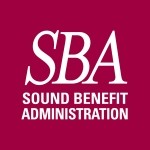I know what you’re thinking: this is a blatant, money-grab for SBA. It’s not. Rather, it’s giving credence to an increasingly universal truth: employee benefit regulations get more complicated every year. As employers seek to lower costs but still attract talented employees, they are adding a host of benefit options…with varying rules and compliance requirements. Many of these programs are inter-related, thus coordination of these programs becomes key to ensure compliance and avoid costly penalties. If the various programs are spread between two or more TPAs, the possibility that key elements will get missed increases dramatically.
Here are just a few ways alphabet soup programs interact.
FSAs & COBRA:
Health FSAs are a COBRA eligible benefit. When an employee terminates as a participant in a Health FSA with money still in their account, all the necessary COBRA administration must be completed, including calculating the rate, sending out notices, administering payment (if COBRA is elected). A terminated FSA participant must elect COBRA if they wish to prevent their remaining account balance from being forfeited. If an employer uses one TPA for the FSA administration and another for COBRA, coordination is necessary to ensure that:
-
- The COBRA administrator is notified that the terminated employee has a Health FSA account balance.
- The Health FSA COBRA premium is calculated properly.
If the programs are handled by the same TPA, the coordination is in one place, removing the employer as a go-between and ensuring COBRA compliance.
HRAs & COBRA:
Like the Health FSA, an HRA is a COBRA eligible benefit. So is an ICHRA. If a participant terminates with a remaining unreimbursed balance, they have the option to elect COBRA. Now, calculating the correct HRA COBRA premium is not an easy task. If the employer uses separate TPAs for their HRA and COBRA administration, the COBRA TPA must either ask the HRA TPA for the COBRA rates or, (in the case of HRA TPAs who refuse to give them) ask for prior year HRA utilization so the COBRA TPA can calculate the HRA COBRA premiums.
HRAs & FSAs:
There are several considerations for employers who maintain both an HRA and FSA.
-
- Coordination between the plans must exist to ensure a participant isn’t double-dipping on expenses.
- The employer’s plan documents detail which program pays first. Some employers require that the HRA reimbursements must be exhausted before FSA funds can be used. Other state that the HRA pays after the FSA is exhausted.
An employer using separate TPAs runs the risk of unknowingly allowing participants to double-dip and/or violating the plan document pay-first rules if the individual TPAs are not aware of the claims made to the other plan.
HSAs & FSAs:
There are limitations in place for employers who wish to offer an HSA and FSA plans. The FSA must be what is considered an “HSA-compatible” or “Limited-Scope FSA.” These plans can limit eligible expenses to cover specific types of expenses, say dental or vision expenses. Or, they must require that the HDHP deductible is met prior to covering any eligible expenses. Again, with separate TPAs, double-dipping is a much greater risk, as is the potential for non-eligible expenses being reimbursed.
HSAs & COBRA:
HSA’s, because they are owned by the employee, are a little different animal. They are not subject to COBRA eligibility. However, COBRA still interacts with an HSA in a couple of ways:
-
- When employee terminates with an HSA account, they may continue contributing to that HSA while on COBRA.
- They have the ability to pay their COBRA premiums with their HSA funds.
A TPA who handles both programs can mail the COBRA notice with the HSA medical plan included and reach out to the ex-employee to move their account to an individual status.
POPs & HSAs:
If an employer who maintains a Premium Only Plan adopts an HSA, they will need to ensure that their POP plan document (yes, this is required) includes the ability to add HSA pre-tax contributions.
Phew. Don’t even get me started if an employer has all of the above programs and separate TPAs. That’s a recipe for, well, double-dipping nightmares, COBRA non-compliance and…penalties!
So, while this isn’t a sales pitch for SBA (although we do offer admin services for all the programs above – and we do a pretty darned good job on coordinating all plans – if I can toot our horn for one second) it is food for thought for employers to consider consolidating administration of their programs with one TPA. And, we hope that SBA will be tops on your list. By the way we have a super easy quote form for all programs on our website that you can complete online!
